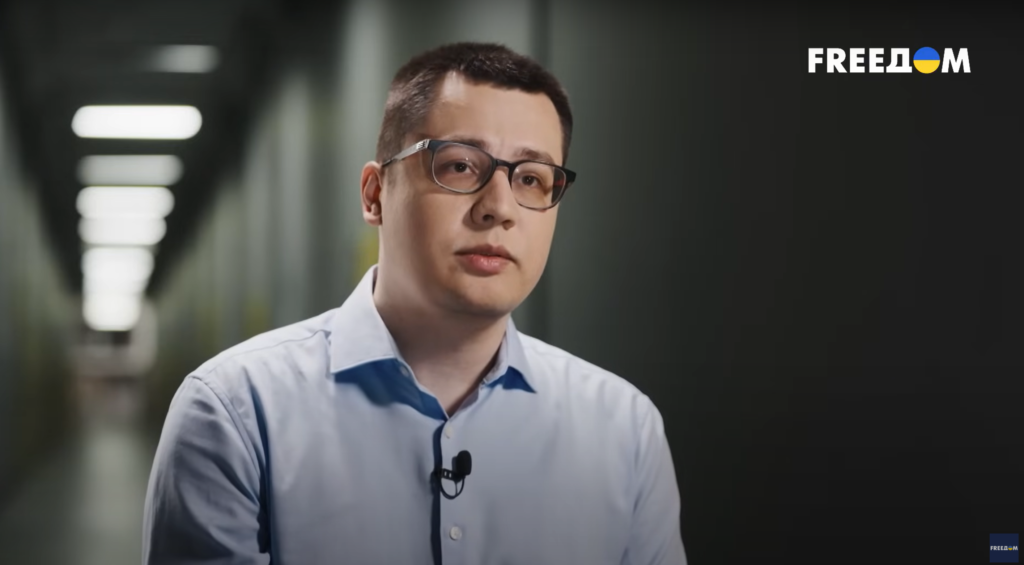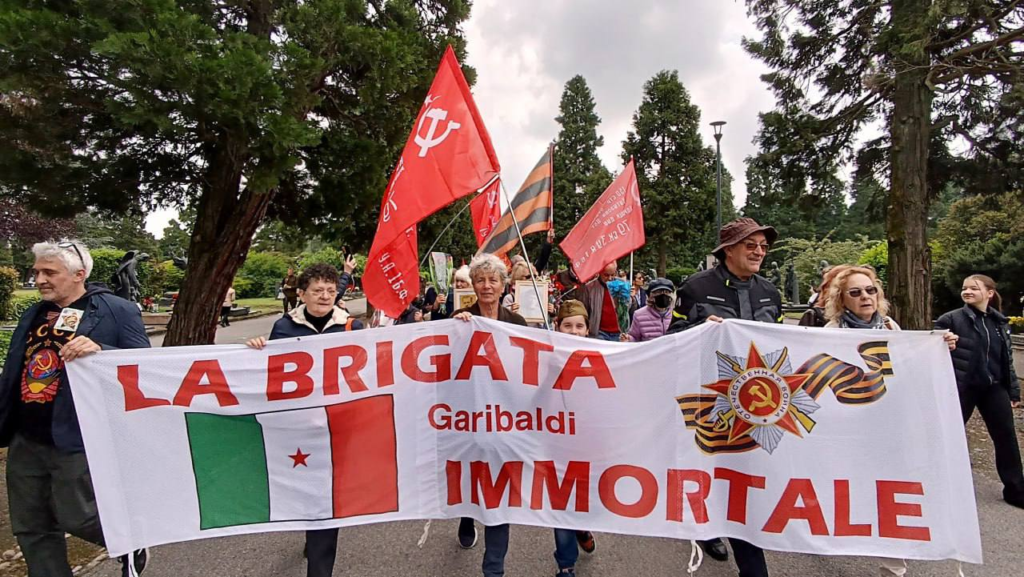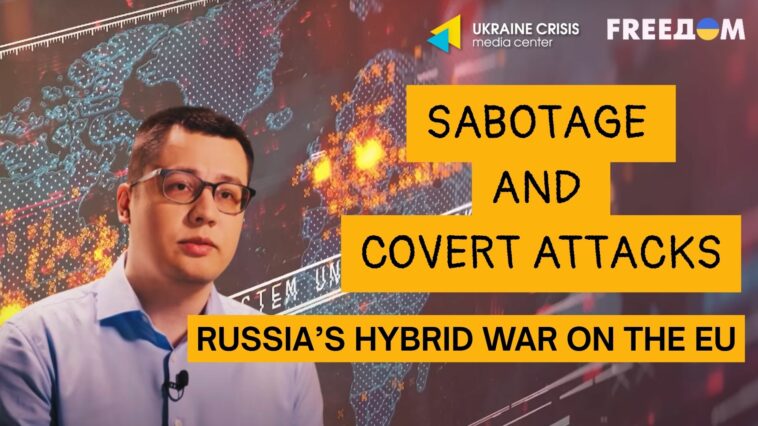Western media reported at the beginning of the year that Russia had created a special unit tasked with organizing sabotage and attacks in Europe. Its operatives infiltrate defense industry enterprises in Western countries, universities, and financial institutions, and also plan and carry out kidnappings and assassinations. How is the Kremlin building its spy network in the EU, and could these acts of sabotage stop Europe’s military support for Ukraine?
Volodymyr Solovian, head of the Hybrid Warfare Analysis Group at the Ukraine Crisis Media Center, provided his insights in a new episode of the project “Hybrid Operations” on the FREEДОМ TV channel.

Text version:
As of today, Russian intelligence services are actively using messaging apps to recruit individuals willing to cooperate for ideological or financial reasons. This methodology was previously tested in Ukraine. Typically, marginal individuals or those with pro-Russian ideological views are involved in sabotage activities. The primary targets for Russian recruiters are Ukrainians who have relocated to Europe, as the objective of discrediting Ukraine is achieved regardless of whether sabotage actually occurs.
The main challenge for Western intelligence communities lies in the technical ability to monitor messages in encrypted messengers and to respond quickly to such hybrid operations in cyberspace. I believe that the arrest of Telegram CEO Pavel Durov in Paris last year is part of broader efforts to take control over various areas of Russian intelligence activities, including sabotage operations in Europe.
Russia is attempting to create an atmosphere of fear in Europe over the prospect of a large-scale continental war. Moscow will continue to exploit Europe’s vulnerabilities in energy and cyberspace. We are likely to see an escalation of such activities in the coming years. I believe the first major signal was the blackout on the Iberian Peninsula in late April.

The Kremlin’s priority targets include financial elites involved in supporting Ukraine, primarily the European defense-industrial complex. Russian propaganda systematically fosters an atmosphere of anxiety and fear around supporting Ukraine, even without physically targeting personnel or executives of European defense companies. How effective this tactic is remains unclear. The governments of most European countries are expected to continue supporting Ukraine. However, within professional communities, this pressure could affect the speed and consistency in decision-making.

Russia also traditionally uses scientific diplomacy for espionage and recruitment purposes. A telling example is the Peoples’ Friendship University of Russia named after Patrice Lumumba, established in Moscow in the early 1960s. Many political leaders from the African continent and other Global South countries received their education within its walls.
At the same time, the Kremlin does not overlook the opportunities offered by Russia sympathizers in the European academic community, primarily among proponents of far-left ideologies. These “useful idiots” can be deployed for public demonstrations, which Russia then amplifies through its media networks. We observe this in Southern European countries, where historical ties between communist groups and Moscow remain strong.




